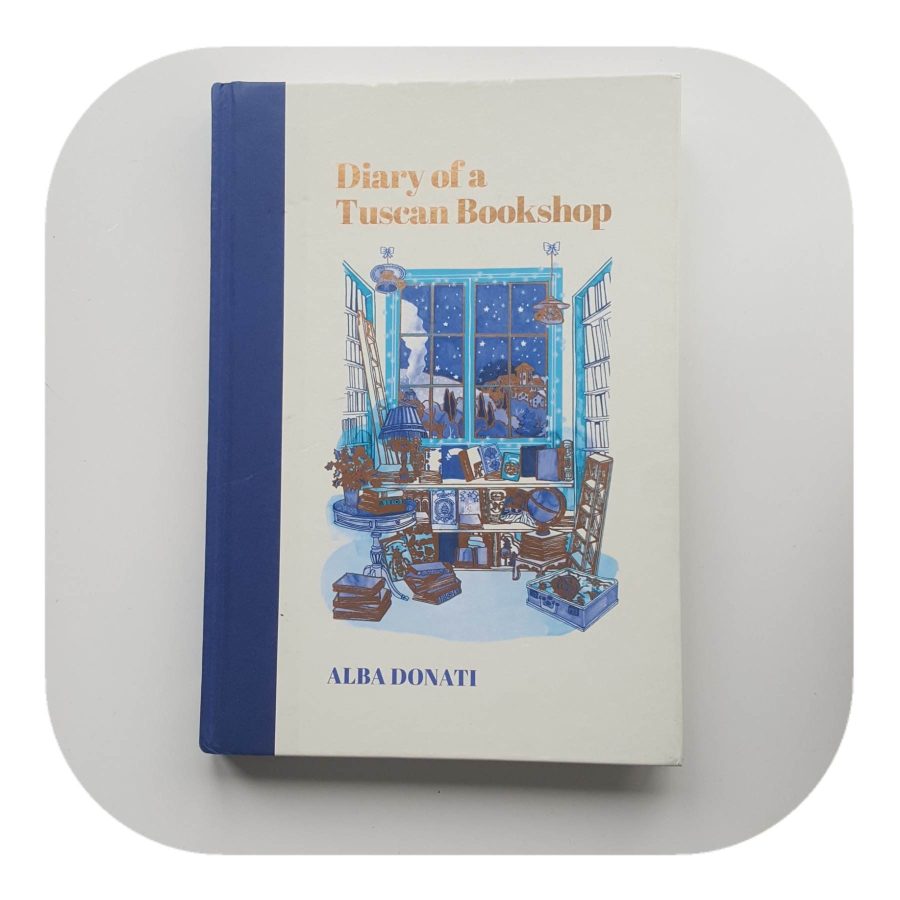‘I want to open a little bookshop – say, a tiny wooden cottage open six months a year where children (but also adults) can find a book that speaks to them, a magical place where you can admire the most wonderful sunsets on the Apuan Alps.’
This was part of what Alba Donati wrote when she started crowdfunding for her bookshop in her tiny village (Lucignana). Donations started trickling through straight away, followed by a larger donation from an Italian American Lady whose father had grown up in Lucignana. It seemed that Donati’s plea for help reached all corners of the world.
‘The bookshop was already everywhere, before it even existed. It had begun casting its spells when it was only a craggy little hill, home to a few heads of lettuce, two rusty poles and a wire where clothes hang to dry.’
After returning to her childhood home, Donati bravely set out to open a tiny bookshop on a small space next to her home, where her mother used to grow lettuce and hang clothes to dry. Many people thought she had lost her mind trying to open a bookshop in a village with only 180 people, but with a little luck and hard work, the bookshop appeared and opened on 7th December 2019, only to be burnt down on the 30th January 2020 and reopened again with the help of kindred-spirits all over the world.
Throughout her diary Donati writes about the ups and downs of running a bookshop, reminisces about the past, and comments on her favourite poets and authors. Donati talks about the people who visit her shop and how they make her happy and surprised when they choose books she has carefully selected. She also mentions how 30% of her village are against her having a bookshop, though from my own observations this seems to be true no matter where you are, village, town, or city, there are always a certain number of people who will be against you no matter what. She comments that most of her visitors are females ranging from teenagers through to the elderly, though most are between the ages of 40 and 60 years. However, she finds that teenage boys are her smallest demographic, again from my own observations this seems to be true in many bookshops.
‘I spend my nights looking for books, new releases but also forgotten books – books that were neglected because of the implacable conveyor belt that carries titles on and off the shelves – two weeks of visibility that’s it. Next, please. But there are readers out there who, like me, don’t always chase the hottest releases.’
Covid-19 and subsequent lockdowns hit everywhere, including Donati’s little bookshop, but despite this she continued to work and promote her shop. When allowed, people came to visit and bought books from her. She does not miss the noise of the city, where she used to live having previously worked as a publicist in Florence. Her diary entries are filled with her observations on the peace and natural beauty of the world around her.
‘A home that doesn’t quite have everything, but most of what you need. That’s why every day I get up at seven o’clock to open the bookshop, water the plants, tidy the shelves and check on the peonies, knowing full well no one will come because we’re in lockdown. I still do it regardless, because something so radical and idyllic will not abide by ministerial decrees. Because passion cares nothing for success, and feeds on its own fire.’
Although ‘Diary of a Tuscan Bookshop’ is written in the form of diary entries, it feels more like a memoir which might throw some readers off. Donati writes often about events in the past, her friends and her family. She writes about her experiences and thoughts from childhood and growing up. If you’re expecting a female version of Shaun Bythell then you will be sorely disappointed as Donati is not a sarcastic, grumpy bookseller, she is a positive and charming soul with her own brand of humour, and an undeniable passion for books.
‘A bookshop is a school – a window looking out on a world that we only think we know. But to really understand the world we have to read, because those who write are always inspired by something that doesn’t quite fit the mould.’
